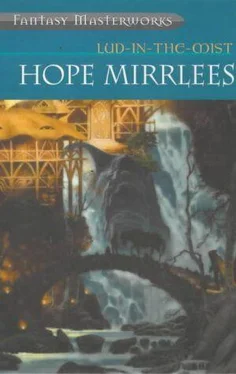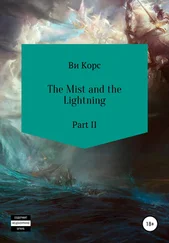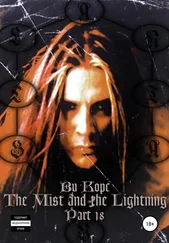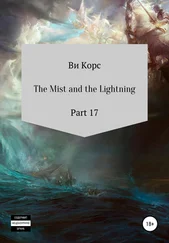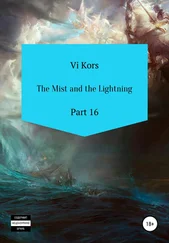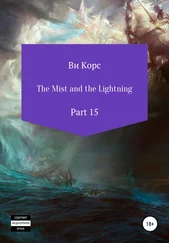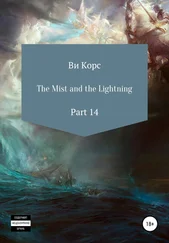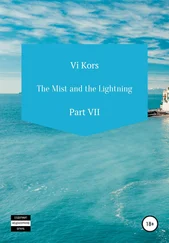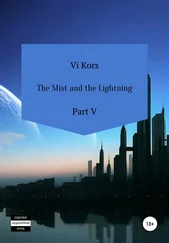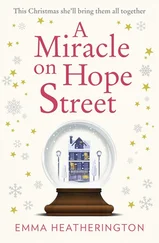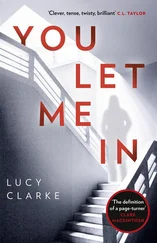Hope Mirrlees
Lud-in-the-Mist
First published 1926
To the Memory of My Father
The Sirens stand, as it would seem, to the ancient and the modern, for the impulses in life as yet immoralised, imperious longings, ecstasies, whether of love or art, or philosophy, magical voices calling to a man from his "Land of Heart's Desire," and to which if he hearken it may be that he will return no more - voices, too, which, whether a man sail by or stay to hearken, still sing on.
Jane Harrison.
Chapter I
Master Nathaniel Chanticleer
The Free State of Dorimare was a very small country, but, seeing that it was bounded on the south by the sea and on the north and east by mountains, while its centre consisted of a rich plain, watered by two rivers, a considerable variety of scenery and vegetation was to be found within its borders. Indeed, towards the west, in striking contrast with the pastoral sobriety of the central plain, the aspect of the country became, if not tropical, at any rate distinctly exotic. Nor was this to be wondered at, perhaps; for beyond the Debatable Hills (the boundary of Dorimare in the west) lay Fairyland. There had, however, been no intercourse between the two countries for many centuries.
The social and commercial centre of Dorimare was its capital, Lud-in-the-Mist, which was situated at the confluence of two rivers about ten miles from the sea and fifty from the Elfin Hills.
Lud-in-the-Mist had all the things that make an old town pleasant. It had an ancient Guild Hall, built of mellow golden bricks and covered with ivy and, when the sun shone on it, it looked like a rotten apricot; it had a harbour in which rode vessels with white and red and tawny sails; it had flat brick houses - not the mere carapace of human beings, but ancient living creatures, renewing and modifying themselves with each generation under their changeless antique roofs. It had old arches, framing delicate landscapes that one could walk into, and a picturesque old graveyard on the top of a hill, and little open squares where comic baroque statues of dead citizens held levees attended by birds and lovers and insects and children. It had, indeed, more than its share of pleasant things; for, as we have seen, it had two rivers.
Also, it was plentifully planted with trees.
One of the handsomest houses of Lud-in-the-Mist had belonged for generations to the family of Chanticleer. It was of red brick, and the front, which looked on to a quiet lane leading into the High Street, was covered with stucco, on which flowers and fruit and shells were delicately modelled, while over the door was emblazoned a fine, stylized cock - the badge of the family. Behind, it had a spacious garden, which stretched down to the river Dapple. Though it had no lack of flowers, they did not immediately meet the eye, but were imprisoned in a walled kitchen-garden, where they were planted in neat ribands, edging the plots of vegetables. Here, too, in spring was to be found the pleasantest of all garden conjunctions - thick yew hedges and fruit trees in blossom. Outside this kitchen-garden there was no need of flowers, for they had many substitutes. Let a thing be but a sort of punctual surprise, like the first cache of violets in March, let it be delicate, painted and gratuitous, hinting that the Creator is solely preoccupied with aesthetic considerations, and combines disparate objects simply because they look so well together, and that thing will admirably fill the role of a flower.
In early summer it was the doves, with the bloom of plums on their breasts, waddling on their coral legs over the wide expanse of lawn, to which their propinquity gave an almost startling greenness, that were the flowers in the Chanticleers' garden. And the trunks of birches are as good, any day, as white blossom, even if there had not been the acacias in flower. And there was a white peacock which, in spite of its restlessness and harsh shrieks, had something about it, too, of a flower. And the Dapple itself, stained like a palette, with great daubs of colour reflected from sky and earth, and carrying on its surface, in autumn, red and yellow leaves which may have fallen on it from the trees of Fairyland, where it had its source - even the Dapple might be considered as a flower growing in the garden of the Chanticleers.
There was also a pleached alley of hornbeams. To the imaginative, it is always something of an adventure to walk down a pleached alley. You enter boldly enough, but soon you find yourself wishing you had stayed outside - it is not air that you are breathing, but silence, the almost palpable silence of trees. And is the only exit that small round hole in the distance? Why, you will never be able to squeeze through that ! You must turn back…too late! The spacious portal by which you entered has in its turn shrunk to a small round hole.
Master Nathaniel Chanticleer, the actual head of the family, was a typical Dorimarite in appearance; rotund, rubicund, red-haired, with hazel eyes in which the jokes, before he uttered them, twinkled like a trout in a burn. Spiritually, too, he passed for a typical Dorimarite; though, indeed, it is never safe to classify the souls of one's neighbors; one is apt, in the long run, to be proved a fool. You should regard each meeting with a friend as a sitting he is unwittingly giving you for a portrait - a portrait that, probably, when you or he die, will still be unfinished. And, though this is an absorbing pursuit, nevertheless, the painters are apt to end pessimists. For however handsome and merry may be the face, however rich may be the background, in the first rough sketch of each portrait, yet with every added stroke of the brush, with every tiny readjustment of the "values," with every modification of the chiaroscuro, the eyes looking out at you grow more disquieting. And, finally, it is your own face that you are staring at in terror, as in a mirror by candle-light, when all the house is still.
All who knew Master Nathaniel would have been not only surprised, but incredulous, had they been told he was not a happy man. Yet such was the case. His life was poisoned at its springs by a small, nameless fear; a fear not always active, for during considerable periods it would lie almost dormant - almost , but never entirely.
He knew the exact date of its genesis. One evening, many years ago, when he was still but a lad, he and some friends decided as a frolic to dress up as the ghosts of their ancestors and frighten the servants. There was no lack of properties; for the attics of the Chanticleers were filled with the lumber of the past: grotesque wooden masks, old weapons and musical instruments, and old costumes - tragic, hierophantic robes that looked little suited to the uses of daily life. There were whole chests, too, filled with pieces of silk, embroidered or painted with curious scenes. Who has not wondered in what mysterious forests our ancestors discovered the models for the beasts and birds upon their tapestries; and on what planet were enacted the scenes they have portrayed? It is in vain that the dead fingers have stitched beneath them - and we can picture the mocking smile with which these crafty cozeners of posterity accompanied the action - the words "February," or "Hawking," or "Harvest," having us believe that they are but illustrations of the activities proper to the different months. We know better. These are not the normal activities of mortal men. What kind of beings peopled the earth four or five centuries ago, what strange lore they had acquired, and what were their sinister doings, we shall never know. Our ancestors keep their secret well.
Among the Chanticleers' lumber there was also no lack of those delicate, sophisticated toys - fans, porcelain cups, engraved seals - that, when the civilisation that played with them is dead, become pathetic and appealing, just as tunes once gay inevitably become plaintive when the generation that first sang them has turned to dust. But those particular toys, one felt, could never have been really frivolous - there was a curious gravity about their colouring and lines. Besides, the moral of the ephemeral things with which they were decorated was often pointed in an aphorism or riddle. For instance, on a fan painted with wind-flowers and violets were illuminated these words: "Why is Melancholy like Honey? Because it is very sweet, and it is culled from Flowers."
Читать дальше
